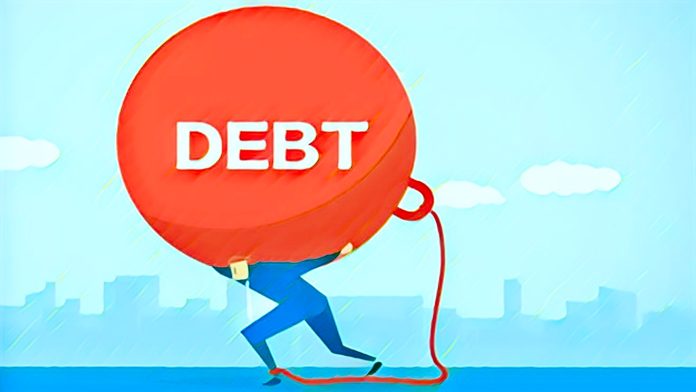KEY POINTS
- Nigeria’s external debt may reach $45.1 billion by December 2024.
- Federal Government approves $2.2 billion in new external borrowing.
- Debt servicing costs surged by nearly 40% in 2024’s first nine months.
Nigeria’s external debt stock is on track to hit $45.1 billion by the end of 2024, following the Federal Government’s efforts to secure additional external financing. The Debt Management Office (DMO) recently reported that external debt grew by $780 million in the second quarter of 2024, climbing from $42.12 billion in March to $42.9 billion by June.
The punch reported that the increase in naira valuation of external debt was driven by the significant depreciation of the naira, which rose from N1,330.26/$1 in March to N1,470.19/$1 in June. While the dollar-denominated debt rose marginally by 1.87%, the local currency valuation surged by 12.59%, amplifying the fiscal burden.
Federal Government approves $2.2 billion borrowing plan
Last Thursday, the Federal Executive Council approved a $2.2 billion external borrowing initiative to fund the Federal Government’s 2024 Appropriation Act. The plan includes a mix of financial instruments: $1.7 billion in Eurobond issuance and $500 million in Sukuk offerings.
Finance Minister Wale Edun announced that the funds aim to bolster fiscal stability amidst economic reforms. The final allocation between the instruments will depend on market conditions, with transaction advisors providing guidance. Edun emphasized that the borrowing aligns with Nigeria’s broader economic recovery strategy, which focuses on macroeconomic stabilization and fostering local production.
“This borrowing is part of our efforts to complete the Federal Government’s external financing program. Approval from the National Assembly will allow us to proceed before the year ends,” Edun stated.
Debt servicing costs escalate as reforms take shape
The mounting external debt has translated to rising debt servicing costs. The Central Bank of Nigeria (CBN) revealed that $3.58 billion was spent on foreign debt servicing in the first nine months of 2024, a 39.77% increase from the $2.56 billion spent during the same period in 2023.
These payments reflect the increasing pressure on Nigeria’s fiscal balance amidst ongoing reforms. However, Edun highlighted Nigeria’s recent success with domestic dollar bond issuance, showcasing investor confidence in the country’s financial markets and reform agenda.
While Nigeria’s external debt continues to grow, the government remains committed to leveraging financing to stabilize the economy, enhance exchange rate policies, and drive recovery.



